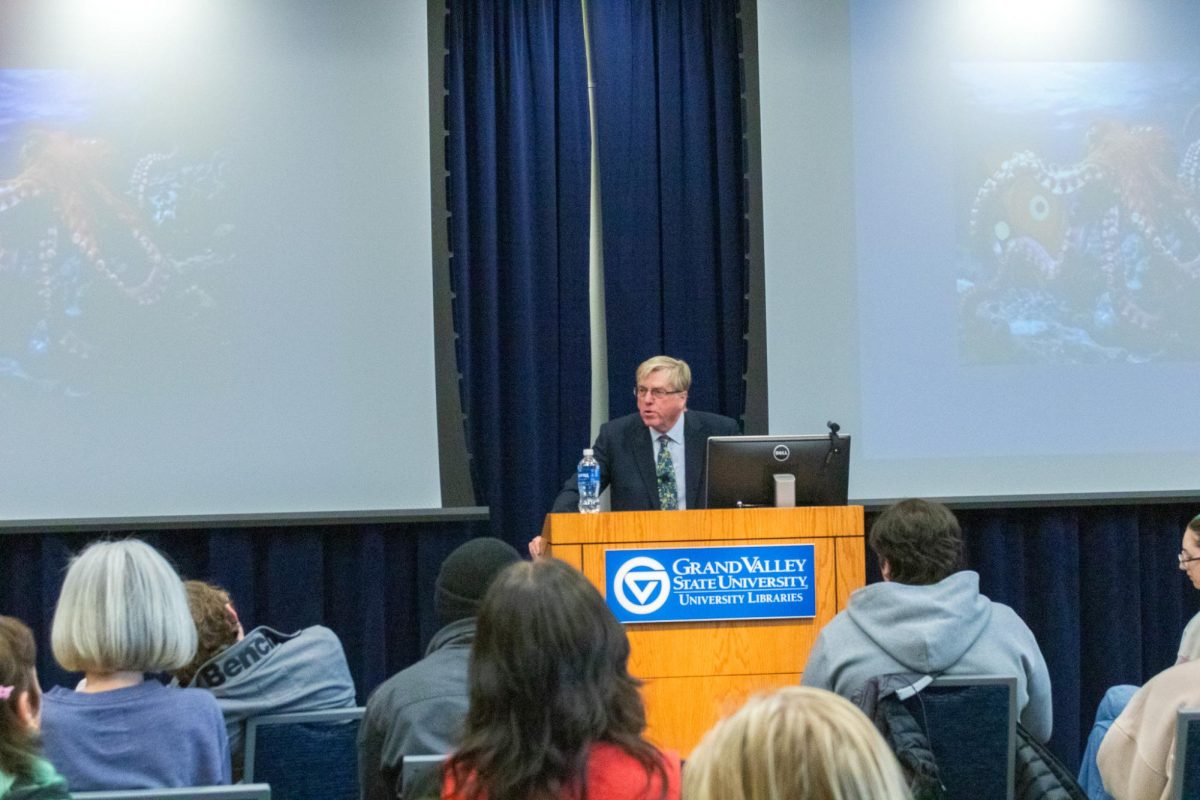ReACT! encourages discussion through theater
Nov 18, 2013
According to the Grand Valley State University organization ReACT!, one in five women, along with one in 15 men, is assaulted at some point in their lifetime. Through interactive performances, ReACT! attempts to show students how to respond to these types of situations.
“(ReACT!) helps the point that I always try to make, (which) is as disturbing as the large numbers are of people who will be assaulted or experience violence; a lot more of us will be bystanders to these situations,” said Dr. Allison Metz, program director and adviser of the group. “If we can help people figure out the best way to help in these situations, we will end up having a stronger and healthier community.”
ReACT! is a theater troupe that strives to educate GVSU’s community on how to handle situations that involve domestic violence, sexual assault and stalking. It’s funded by a federal three-year continuation grant through the federal Violence Against Women Act. The group’s next performance is Nov. 20 at 9 p.m. in the North West A and B Living Center on the Allendale Campus.
“Sexual assault for a number of reasons tends to be under reported,” Metz said. “Ever since Grand Valley has gotten (the VAWA) grant and ReACT! has been doing this work, a lot more people have come forward and reported (assaults).”
The grant was first awarded to GVSU on Oct. 1, 2010. Through the collaborative efforts of Metz and Lynn Hoare of the University of Texas at Austin, ReACT! was developed.
“Since its inception, ReACT! has performed on campus and in the community, including at the Michigan Coalition to End Domestic and Sexual Violence annual conference,” said Theresa Rowland, the program director of the VAWA campus grant.
To become a member of the troupe, students must take CTH 400, which is currently offered in the winter semester and gives students the training they need to become actors. The class is split between Metz, who teaches the theater component, and the Women’s Center, which teaches the anti-violence content.
“We try to make (performances) as interactive as possible,” Metz said. “We figure if you use this type of theater, it needs to be a dialogue. If it was going to be simply sharing information, we would just do a presentation.”
The actors, who are all paid, meet once or twice weekly for rehearsals. The group either rehearses programs it has already created, which include probable scenes and discussion questions, or create new programs.
“I love the learning component (of ReACT!),” said Dmitri Westbrook, a graduate student at GVSU and a third-year member of ReACt! “ReACT! helps us become better people. We love what we do; it clearly shines when I’m onstage. You can see the passion I have.”
Performances typically last an hour to an hour and a half and consist of a combination of scenes, activities and discussion. In the past, the group used to visit specific classes and present its programs, but now it has branched out to LIB 100 and 201-approved campus programs.
“In terms of assaults and interpersonal violence, the numbers here on Grand Valley’s campus mirror national statistics,” Metz said. “We try to make scenes as realistic as possible. We use humor because it helps kind of cut back on a preachy tone and it helps people relax and get into actual, honest discussions.”
Westbrook has encountered a mix of audience responses to performances.
“Some (members) clearly know the different kinds of assault,” Westbrook said. “Some are in a gray area, and some people are like, ‘it’s the victim’s fault.’ We get a range of people at different knowledge levels. But through discussion, we all come to a consensus at the end.”
Alexandria Elliot also joined the troupe three years and encourages the discussion component of ReACT!
“When we first started, it felt like I was in the Justice League,” Elliot said. “(ReACT! is) all these intelligent, passionate people within the same age range coming together to fight something that’s a big issue. You don’t see that often. You rarely see things that go beyond one program, but we are only about telling people why (assault) is wrong. That is really empowering.”
There are currently openings in CTH 400 for the winter semester of 2014. For more information, contact Allison Metz at [email protected].






















